
Welcome back to our queer film retrospective, “A Gay Old Time.” In this week’s column, with Luca Guadagnino’s Challengers theaters now, we’re revisiting another queer love triangle in 1994’s Threesome, celebrating its 30th anniversary this month.
For as long as young people have been, well, young, they’ve been experimenting with their sexuality. Of course, there are those pesky matters like conservative values and beliefs, repressive religion, and limited sexual education that may stunt or forbid that experimentation. But an essential part of growing up has always been growing curious.
The accepted narrative around sexuality (and its portrayals in media and entertainment) is that once you discover what you like and dislike, it becomes a truth engraved in stone for the rest of your life. It’s implied that this discovery comes at once, that there’s no trial and error around it. The stage of experimentation (that part where you try new stuff that may not end up being what you like, with new people that may not end up being who you like) is often skipped over or ignored in stories about sexual coming of age. Particularly when it involves playing around with one or more genders.
Your dose of fabulosi-TEA
Subscribe to our newsletter for your front-row seat to all things entertainment with a sprinkle of everything else queer.
This weekend sees the release of Luca Guadanigno’s Challengers, a sweaty, sexy, explosive drama about three tennis players and the psychosexual love triangle that they get entangled in over the course of a decade. Much has been implied (and more recently, overtly stated) about the sexual dynamics with the trio at its center, played by Zendaya, Josh O’Connor, and Mike Faist.
With that in mind, this week we’ll be stepping back in time 30 years to a little-known comedy that played with this same dynamic—and that sense of discovery and experimentation—before some of these challengers were even born.
The Set-Up
Threesome is a 1994 “erotic dramedy” (as categorized by Wikipedia, with no objection from us), directed by Andrew Fleming, who was behind some of the great cult classics of the ’90s and early 2000s like The Craft, Dick, and Hamlet 2.
The movie stars Lara Flynn Boyle, Stephen Baldwin, and Josh Charles as a trio of college freshmen (Alex, Stuart, and Eddy, respectively) who are forced to share an apartment after the school mistakenly assigns Alex to the building because of her gender neutral name.
The three of them are seemingly completely incompatible at first. Eddy is an intellectual who spends his time reading classic novels, studying at the library, and cleaning—and is, as we later learn, sexually confused. Stuart is an empty-headed alpha male who’s obsessed with girls, working out, and never cleans after himself. And Alex is a free spirit that loves to go with the flow; a perfect meet-me-in-the-middle between the two boys.
If you think the movie is heading a certain direction, you are probably correct.
As the three spend more time together, they start to develop a codependent relationship. They only ever spend time with each other, to the point where there’s barely any other characters with speaking lines, apart from a couple of other students that attempt to date or break into the triangle, with very little success (including one played by the late Alexis Arquette).
Three’s Company

They make a pact that there will be no sex or romance between them; that they will only be friends. However, things get much more complicated very fast.
In a series of plot threads that may be taken from any given ’70s sitcom, Eddy realizes that he is attracted to Stuart early on, and is adamant that Stuart must be closeted and he must be the one to pull him out of the closet. Stuart begins sleeping with Alex without letting Eddy know to spare him from hurt feelings. And Alex goes back and forth between Eddy and Stuart, trying to convince the former that he might not be gay, and enjoying the raw sexuality of the latter.
There’s a couple of moments where all the pent up sexual tension and desire collides with the three of them at the same time. First, when they decide to go on a skinny dipping adventure, they start to lean on their impulses before being interrupted by a crowd approaching the river.
Later on, after being forced to share a bed because the apartment has maintenance issues, they fully give into what has been repressed the entire time, and engage in the titular threesome. In the end, realizing living together is adding undue pressure to their lives, the three decide to move out, and take this experience as a fleeting moment in their lives.
Bi Erasure: The Movie

Watching Threesome is a fascinating experience with thirty years of foresight. On one hand, it’s incredibly progressive in its views of fluid sexuality and openness with experimentation.
Eddy discovers he is almost certainly gay early on, and is never judged or criticized for it by either Stuart or Alex (he is told it’s not the best time to be “a promiscuous homo”, referencing the raging AIDS crisis of the time). And Stuart, perhaps the epitome of an alpha macho male, is able to explore this platonic-romantic-sexual triad without it really threatening his hetero identity. He knows it’s okay to try things out in a way that few straight, masculine-forward characters are allowed to be.
However, the film is also terribly stuck in its time. Alex firmly believes that she can convince Eddy out of being gay if he just finds the right woman to be with, and the movie straight up rejects the notion that a thing like bisexuality could ever be possible.
It’s actually quite fascinating to see how a movie that relishes sexual fluidity also has such a strong concept of binary; it lives and exists solely in terms of being straight or gay. There is no in between. Whatever happens in the middle is not permanent.
Happy Endings?

Threesome is worth a watch to look at how much (and also how little) sexual politics have changed between a trio of friends sharing an apartment and a trio of tennis players sharing the court. It’s entertaining, quite well acted, and is able to portray and articulate a side of sexual coming-of-age that we rarely see in film, let alone as the centerpiece of a movie.
Like a proper threesome, it’s as serious or as involved as you want to make it out to be!
Threesome is now streaming on Tubi, and available for digital rental/purchase via Amazon priem Video, Apple TV, Google Play, Vudu, and YouTubeTV.
Related*


Love, uncoupled: 5 great films—and one TV series—about unconventional queer romances
This Valentine’s Day, look beyond the couple with this list of quote-unquote “nontraditional” queer love stories.
Don't forget to share:



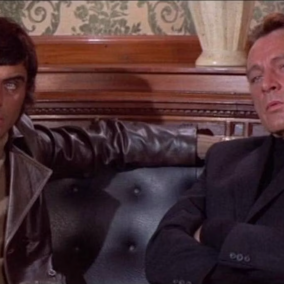
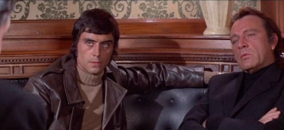


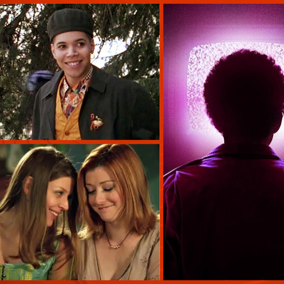

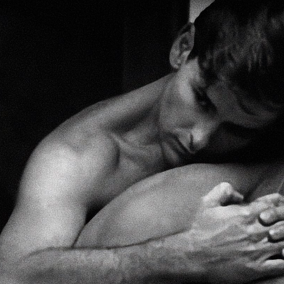
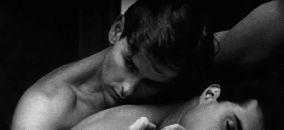
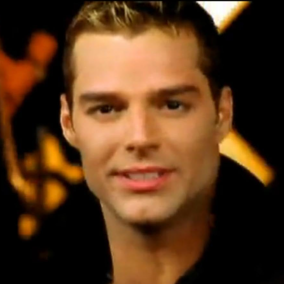
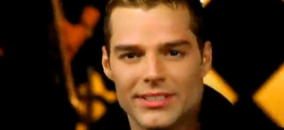


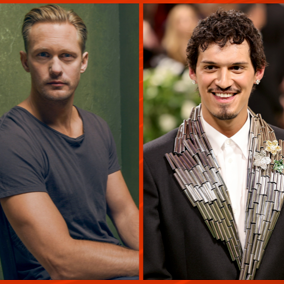



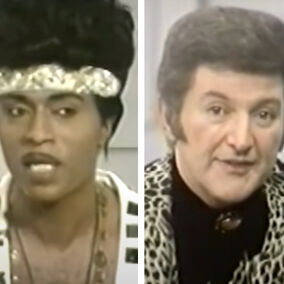
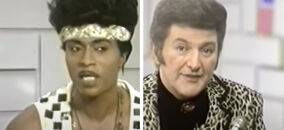
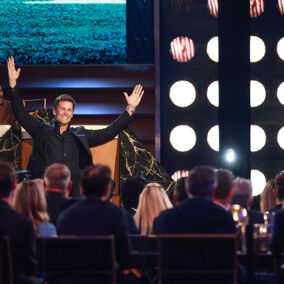

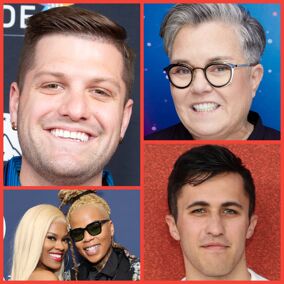

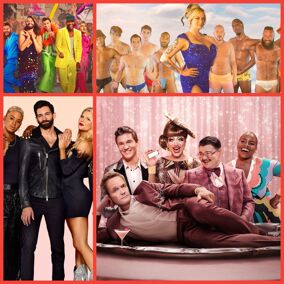


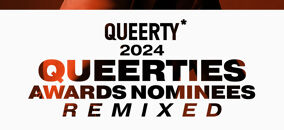
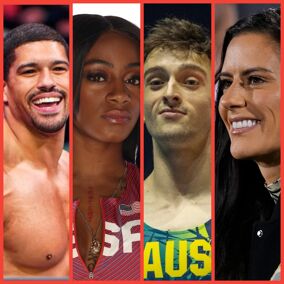

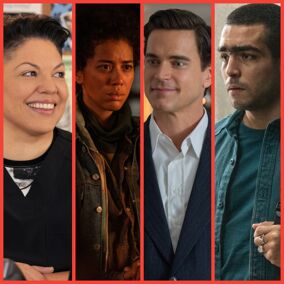
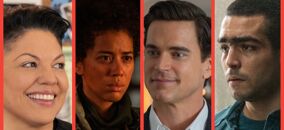
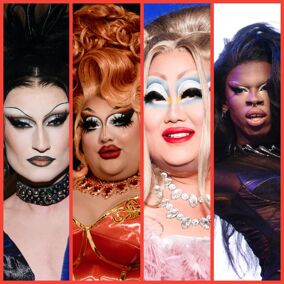



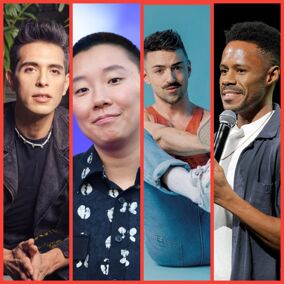

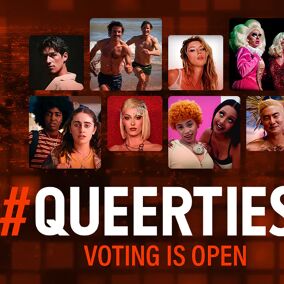

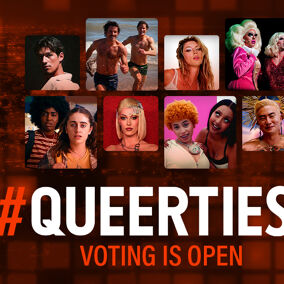



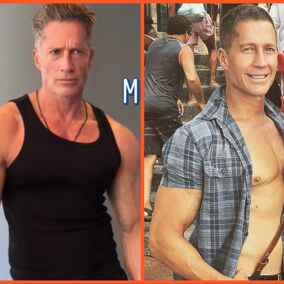
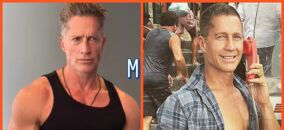










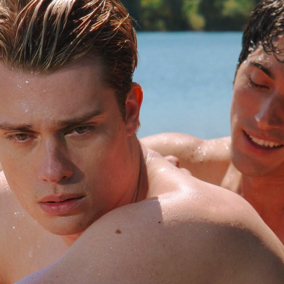





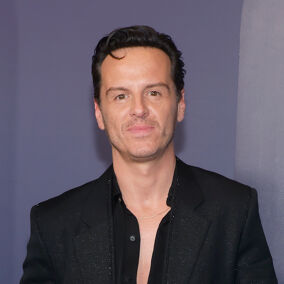
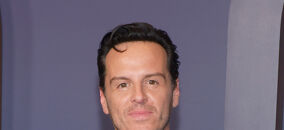
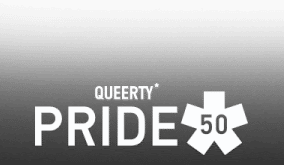



Fahd
Baldwin loudly rejects the theme and regrets participating, so difficult to enjoy.
montyc
Does he regret “Last Exit to Brooklyn”, too? Shame he turned into such a tool.
stephenbrown2
At the time (I am 60), I loved it…